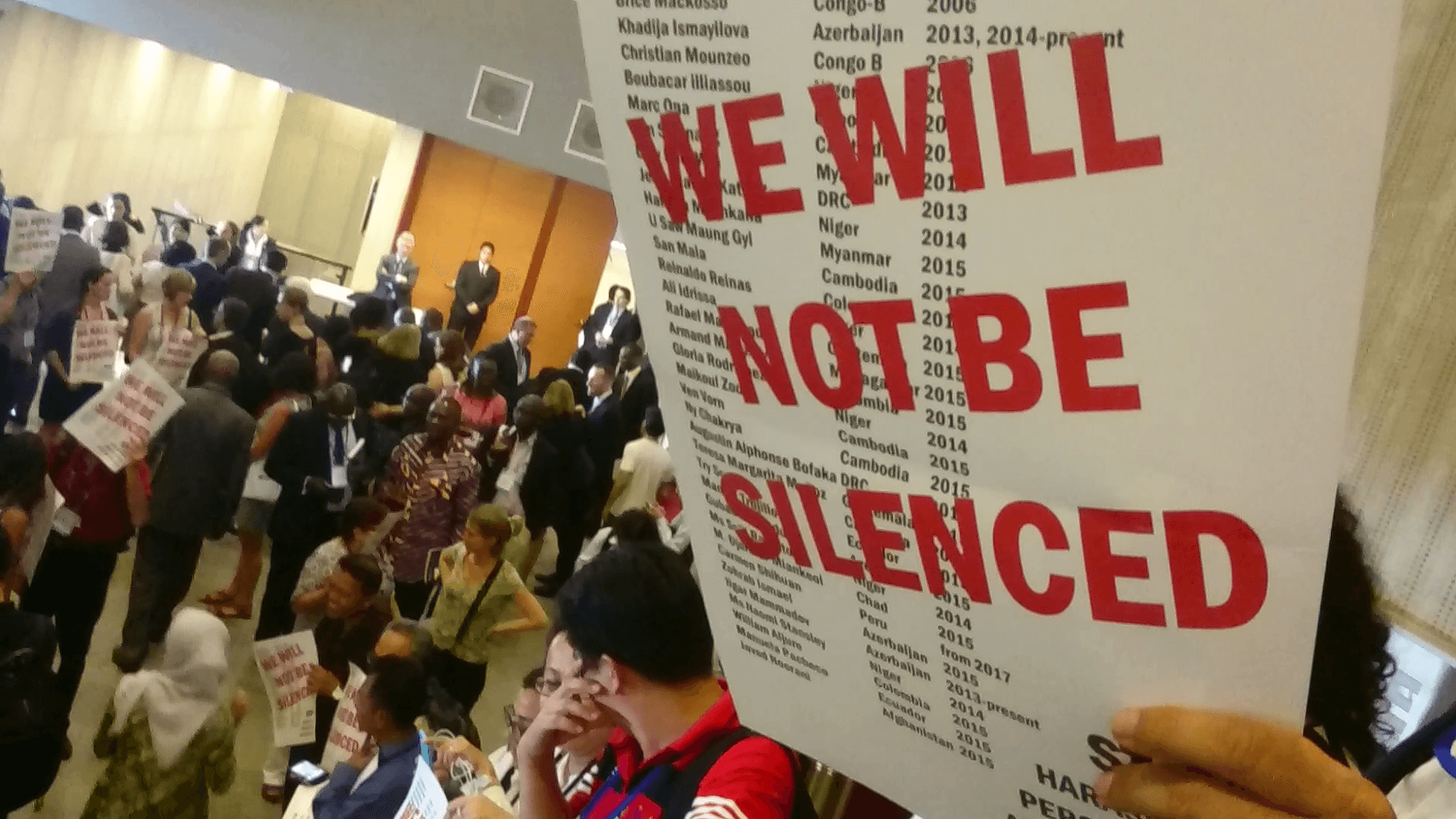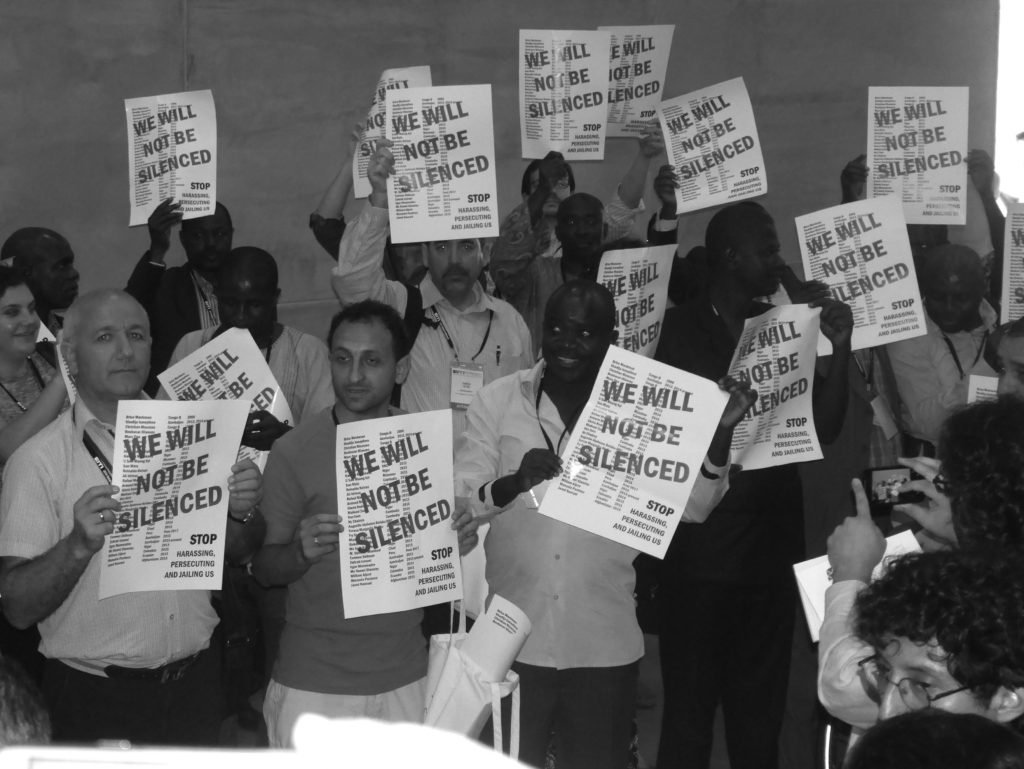
Yesterday in Lima, on the eve of the 2016 Global EITI conference, more than 100 civil society representatives took a principled stance to boycott the members’ meeting, the highest governing body of the EITI. The impetus for the boycott was the improper and illegitimate interference in civil society’s right to self-selection of their representatives to the EITI International Board and the addition of a civil society candidate to the list of civil society nominees, without the support of the broad civil society constituency. This was in violation of the agreed procedures for nominating civil society representatives to the board. In advance of the meeting, civil society tried to work toward resolution by demanding that the illegitimate candidate’s name be removed but to no avail.
Civil society was fully ready to enter the members’ meeting provided that the illegitimate candidate was removed from the roster. Civil society sent a representative into the member’s meeting to make this position known. Outgoing EITI Chair Clare Short, who chaired the meeting, chose to proceed with the meeting despite a majority of one of the key stakeholders not being present. During the meeting, the civil society representative was given the opportunity for a brief intervention before being prevented from fully elaborating civil society’s concerns. In this context the decisions made during that meeting are being called into question. While the sixth name was ultimately withdrawn by the nominating organisation during the member’s meeting, it was done so in a manner and on a time-frame that made it impossible for civil society to rejoin the meeting. All of this is contrary to the spirit and principles of the initiative, and constituted a breach of the governance process and a gross disregard for the trust we have worked to establish over the past decade.
The central principle of the EITI is multi-stakeholder collaboration between governments, companies and civil society as equal partners at all levels of EITI governance. Yesterday the EITI International Board adopted the 2016 EITI Standard, which includes a strengthened Civil Society Protocol to ensure that civil society can fully and freely participate in EITI processes. The principles enshrined in that Protocol have been violated. Civil society is deeply concerned about these actions at the global level, as they set a dangerous precedent for meaningful independent civil society engagement in national EITI processes.

Civil society nominations to the EITI board were coordinated by an independent committee convened by the Publish What You Pay coalition, with the support of 800 civil society organisations worldwide. As noted in the EITI Constituency Guidelines 1, PWYP received this mandate to facilitate nominations following a consultation with civil society stakeholders. The civil society EITI Board nomination process was open to applications from any civil society organisation, with no requirement for affiliation with PWYP. Recognising the importance of ensuring representation from non-PWYP civil society in the nominations committee, the PWYP Global Council convened an independent and credible nominations committee composed of an equal number of PWYP and non-PWYP members. The nominations committee was tasked with upholding good governance in the selection process and ensuring the identification of competent individuals who can legitimately represent civil society interests in the EITI Board. Three of the ten nominees represent organisations that were not affiliated with PWYP.
Civil society welcomes EITI Chair Nominee Fredrik Reinfeldt’s willingness to work with PWYP. During the 2016 PWYP Global Assembly, Mr. Reinfeldt addressed PWYP members and affirmed the critical role of the coalition in making the EITI a strong and credible initiative.
All stakeholders need to remain committed to the core principles of the EITI and protect civil society’s independence. We request that Mr. Reinfeldt immediately convenes a meeting with civil society to explore how to remedy the numerous governance gaps and deficiencies that recent processes have brought to light. We call for a review of the EITI Articles of Association and demand accountability to ensure that encroachment of civil society space never happens again.
1. The EITI Constituency Guidelines note: “Those civil society representatives interested in being represented on the EITI Association or Board are encouraged to contact the Publish What You Pay coalition.”↩










